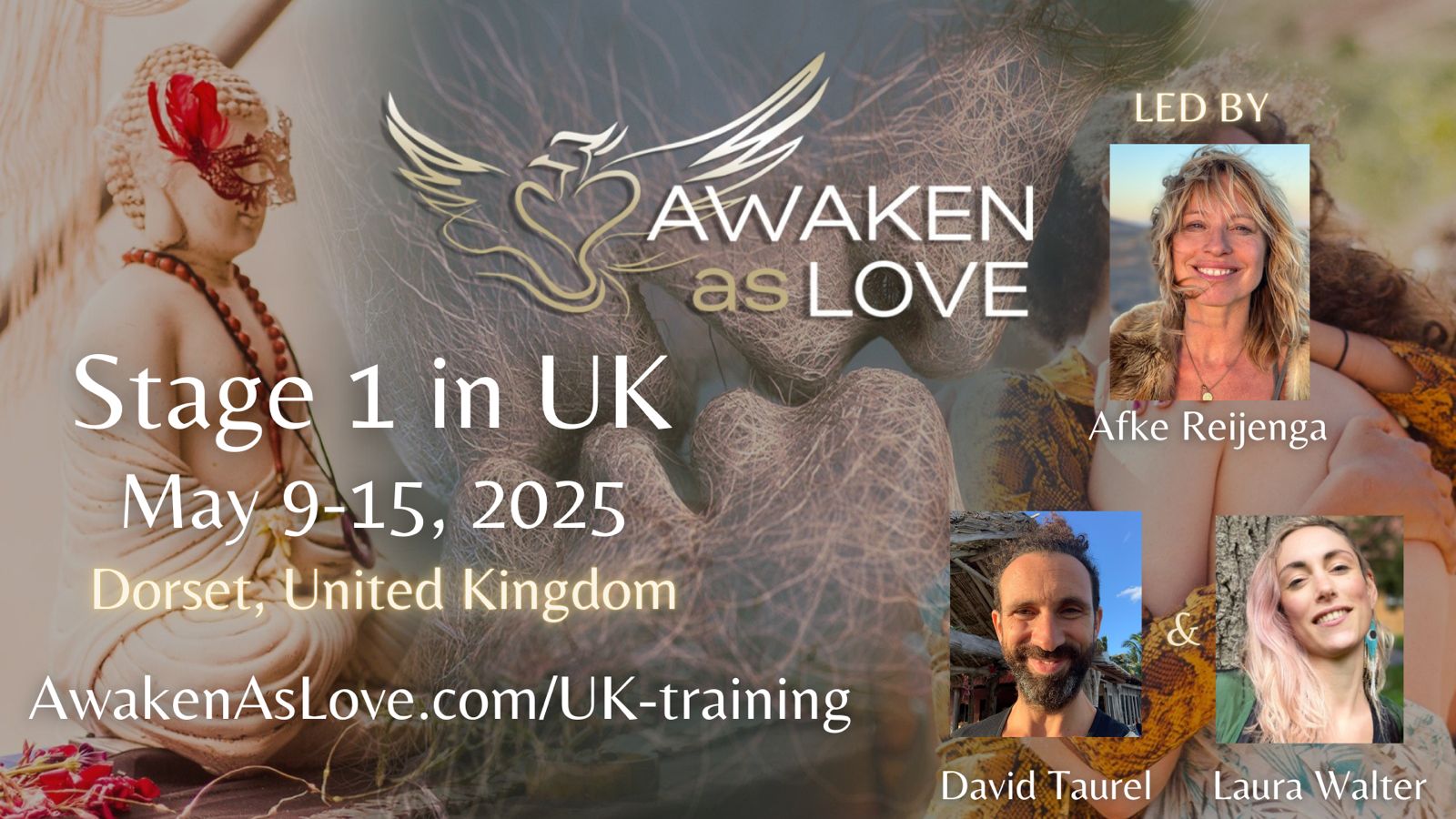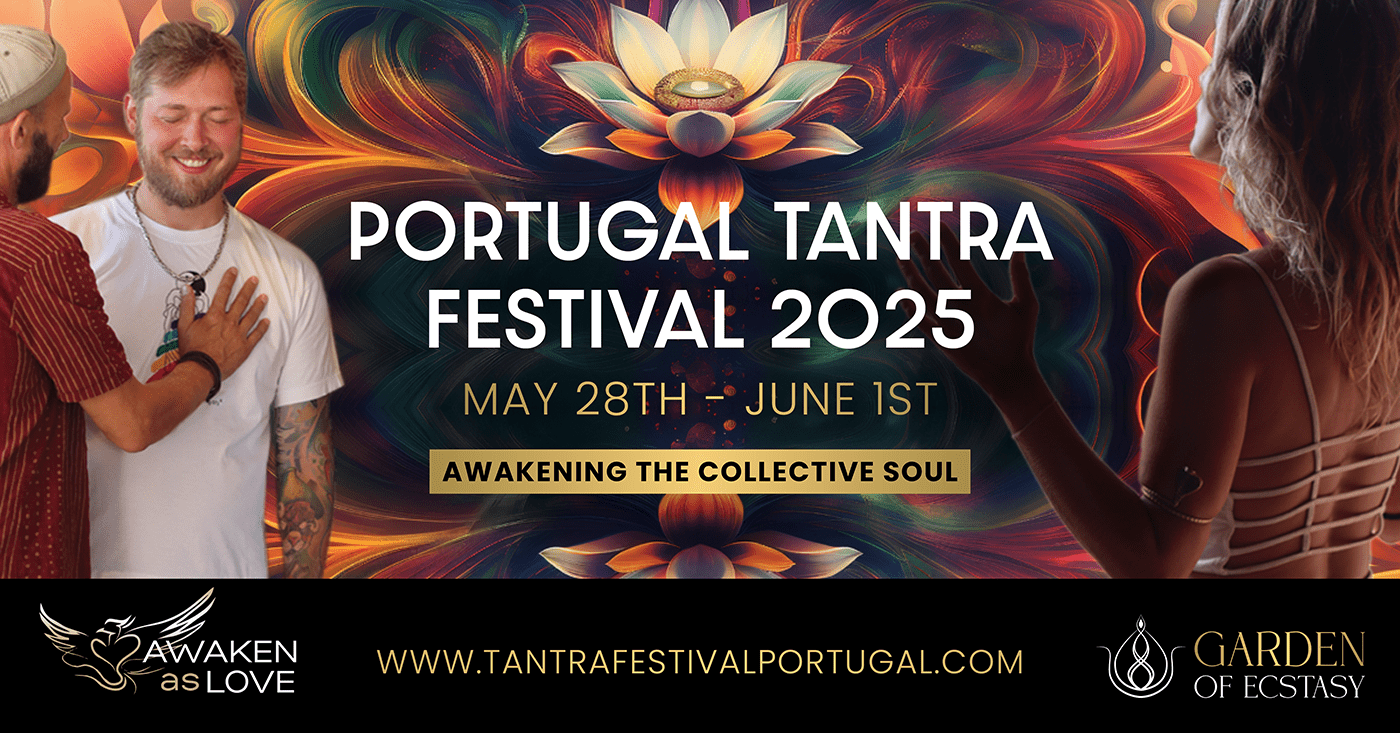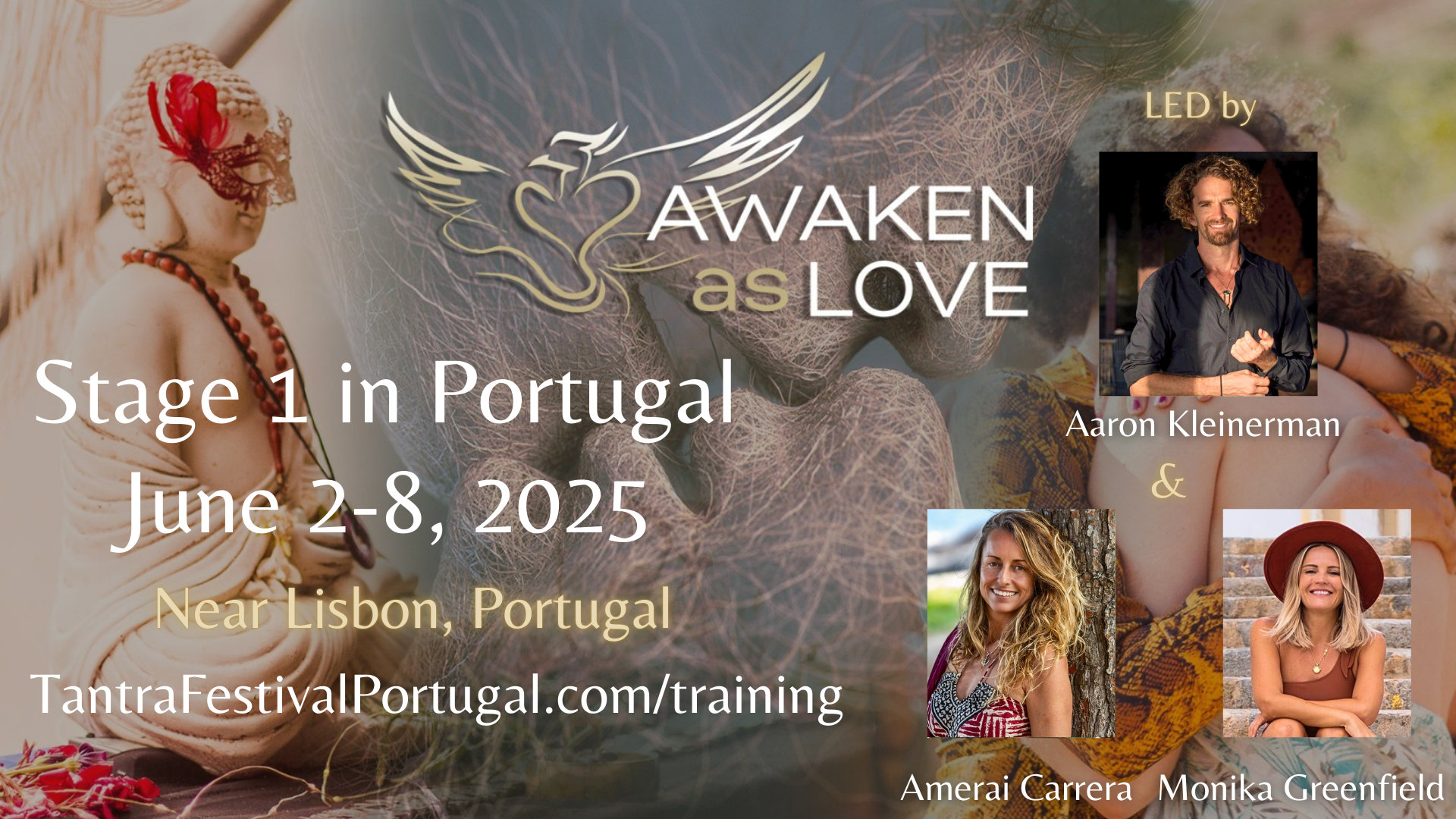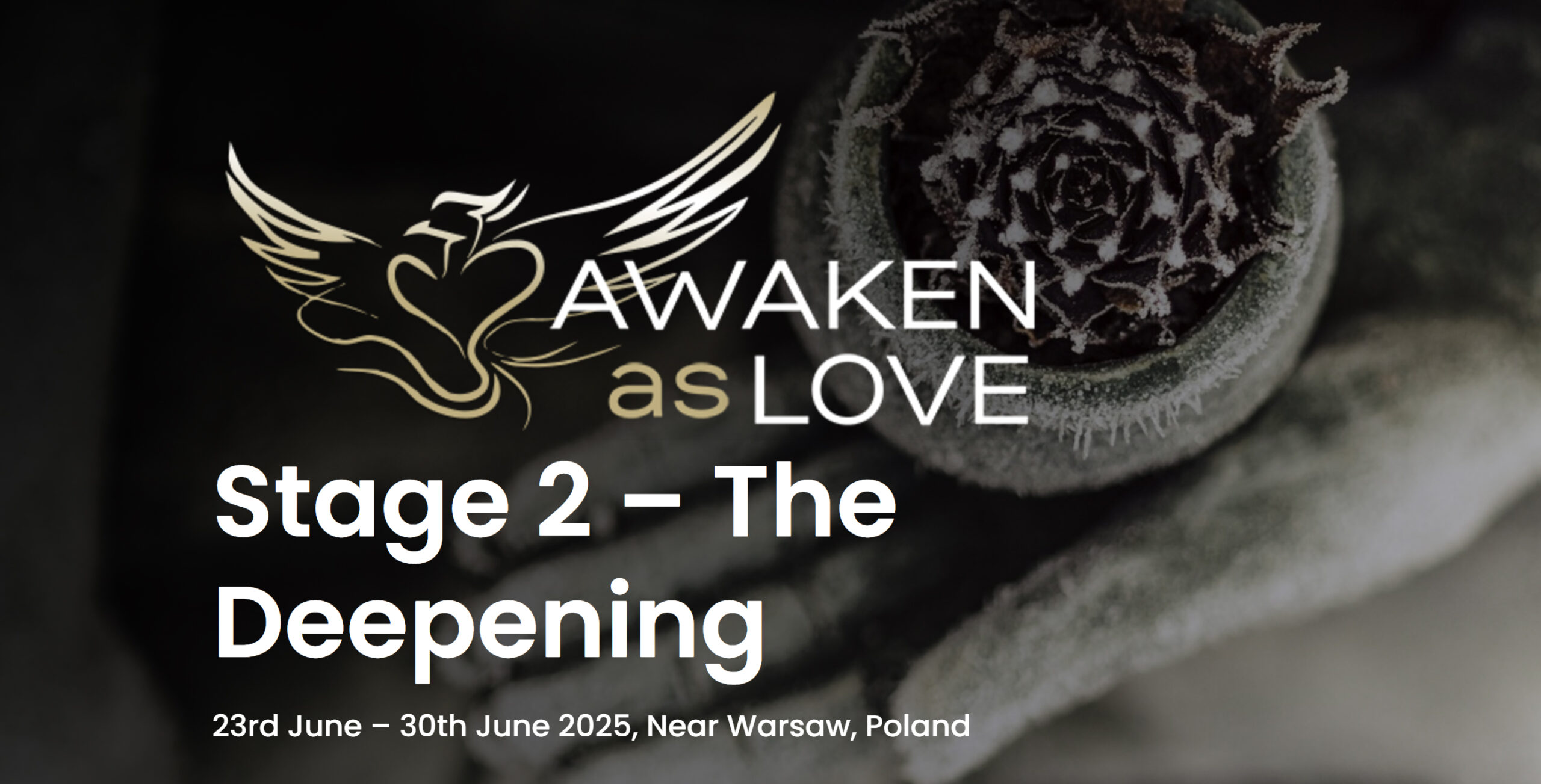
Discover Integral
Are you only using a small fragment of your potential?
What is Integral Theory?
Integral theory is an incredible map that attempts to describe “everything” – how can is this possible?? Well luckily it doesn’t go into detail about every little thing in the universe, which would make for a very complete but rather boring map, but instead notices that there are certain fundamentals of any particular occasion, and that these laws can be applied to the whole of manifest reality.
Although this can sound rather dry (and often it is), when properly understood and embodied it can really expand our minds and understanding of ourselves and the universe in which we live.
Learn More
The AQAL Map
At the foundation of Integral theory is a map containing 5 different elements that help sum up the universe – this is referred to as the AQAL map in shorthand.
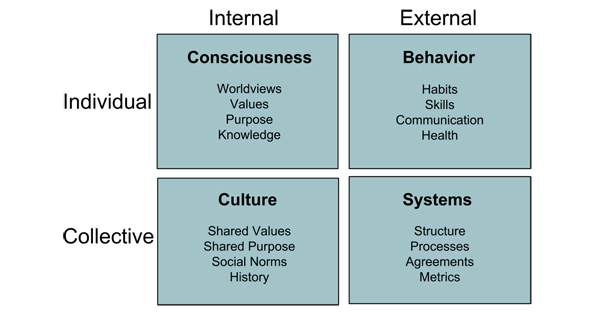
Quadrants
According to Integral Theory, there are at least 4 primary dimensions or perspectives through which we can experience the world: subjective, intersubjective, objective, and interobjective.
Subjective quadrant – we find the world of our individual, interior experiences: our thoughts, emotions, memories, states of mind, perceptions, and immediate sensations—in other words, our “I” space.
Intersubjective quadrant – we find the world of our colletive, interior experiences: our shared values, meanings, language, relationships, and cultural background—in other words, our “we” space.
Objective quadrant – we find the world of individual, exterior things: our material body (including brain) and anything that you can see or touch (or observe scientifically) in time and space—in other words, our “it” space.
Interobjective quadrant – we find the world of collective, exterior things: systems, networks, technology, government, and the natural environment—in other words, our “its” space.
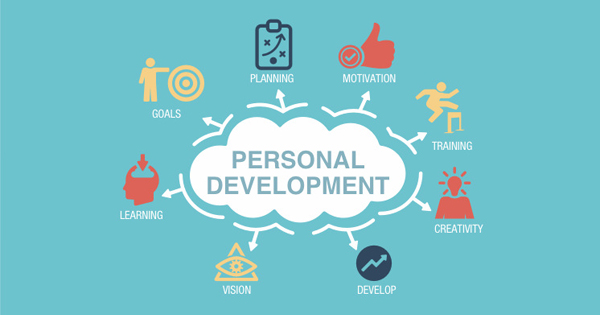
Lines
Lines are present in each quadrant, arising as distinct developmental domains or capacities. They are defined as relatively independent capacities of growth and emergence that unfold in levels or stages. The relative independence of lines stresses that they can be developed to various higher or lower degrees. (This explains the different levels of the lines we see in the psychograph.) Whilst we typically focus on lines of human development in the UL quadrant, lines are actually present in all quadrants, serving as areas of growth in tetra-evolution..
The relative independence of lines does not preclude some important necessary but not sufficient relationships. i.e. A certain degree of physiological development is necessary but not sufficient for cognitive development, and so for cognitive development > self-development > interpersonal development > moral development. Lines have levels and levels arise within lines. They are mutually inter-dependant but can be investigated separately.
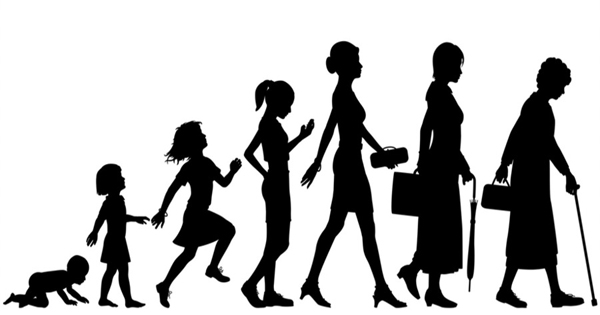
Stages
Stages correspond to the degree of progression one has developed along a specific line, sometimes referrered to as levels of development in other systems. These measure progression that has stabalized to a degree and can be see as being different to states in this regard, because there is a duration over time.
In spiral dynamics model is a elegant example of levels of cultural development in both individuals and cultures as a whole. Levels arise in all quadrants, because they are connected to lines of development, which can grow in any of the quadrants and are often interlinked – development in brain structures, correlate to changes in consciousness.

States
Like levels, states describe where something is at on a scale. The distinction is one of time – levels are capacities that have been gained in a linear progression, and once gained remain. States qualities emerge in a particular moment but could change up or down the scale again – I.e Ice to water, to steam, back to water and back to ice.
Our own consciousness can be in gross waking state, a dreamlike subtle state, deep meditative causal states or in non-dual awareness – regardless of the level of development it’s still possible it is possible for one to enter into these states regardless of the level of development as seen in the image on the right. An enlightened state of consciousness is not necessarily mature in actions or perspectives.
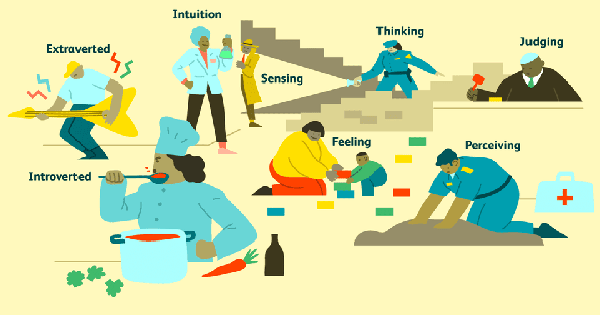
Types
Finally we come to types – this refers to items that can be present at virtually any stage or state – for example, regardless of my state of consciousness, or my level of cultural perspective development, I am a man. So male/female is a type, as are categorizations of people by star sign, or personality type. A beautiful example of a personality type is the enneagram which describes 9 basic perspectives or reactions to situations in the world that people tend towards.
There are even orientations towards which quarants we tend to look towards first of take a perspective from – this is also a typology.
Upcoming Events
These are the next events from Awaken as Love - click on them to open more information in a new window.
Awaken as Eros, Cabo Mexico
7th-14th May 2025
Stage 1 in the UK
9th-15th May 2025
Portugal Tantra Festival
28th May 1st June 2025
Stage 1 in Portugal
2nd - 8th June 2025
Stage 2 in Poland
23rd - 30th June 2025
Netherlands Tantra Festival
23rd – 27th July 2025
Subscribe to Our Newsletter
Signup to our Newsletter to recieve special discounts on events.

© Awaken as Love 2025


